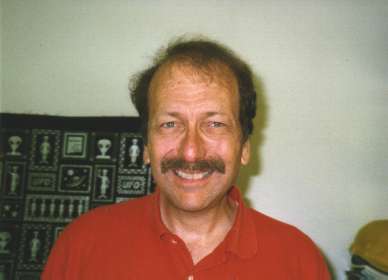
Office: 359 Interdisciplinary Sciences
The major goal of George Blumenthal's current research is to understand the origin of structure in the universe such as galaxies and clusters of galaxies and to determine the role that dark matter (which is detected only through its gravitational effects) plays in the formation and evolution of this structure. Along with several colleagues, he has shown that if the dark matter consists of elementary particles produced in the early universe, then one can understand many galaxy properties such as their mass range and scaling relations. In closely related work, they have shown that the flat rotation curves observed in spiral galaxies are a consequence of the cooling and subsequent infall of the visible material in galaxies and of the gravitational effects of that infall on the invisible halo material.
Blumenthal is also doing considerable research on related cosmological issues, including the generation of density fluctuations during an early inflationary phase of the universe; the origin of fluctuations in the cosmic microwave background radiation as a result both of fluctuations in the gravitational potential and of Compton scattering (and heating) of the radiation by hot gas in clusters of galaxies; the origin of large regions devoid of galaxies; and the nature of the large-scale velocity field in the universe and its implications for the dark matter distribution.
In addition to cosmology, he is doing considerable research on the origin and statistics of gamma-ray bursts. He has also done research on accretion disks and on active galactic nuclei and maintains strong interest in those areas.
Blumenthal has continued to work with a number of recent UCSC Ph.D. recipients, including Ricardo Flores (on spiral galaxy rotation curves), Dieter Hartmann (on gamma-ray bursts), and Scot Olivier (on cluster correlations and on galaxy disk formation). With current students, he has finished a paper with Kathryn Johnston on how cosmic microwave background fluctuations relate to mass correlations in space, and he is working with Katherine Wu on the clustering of galaxies seen in deep pencil redshift surveys.